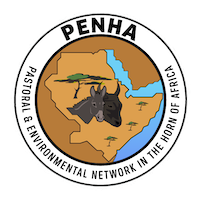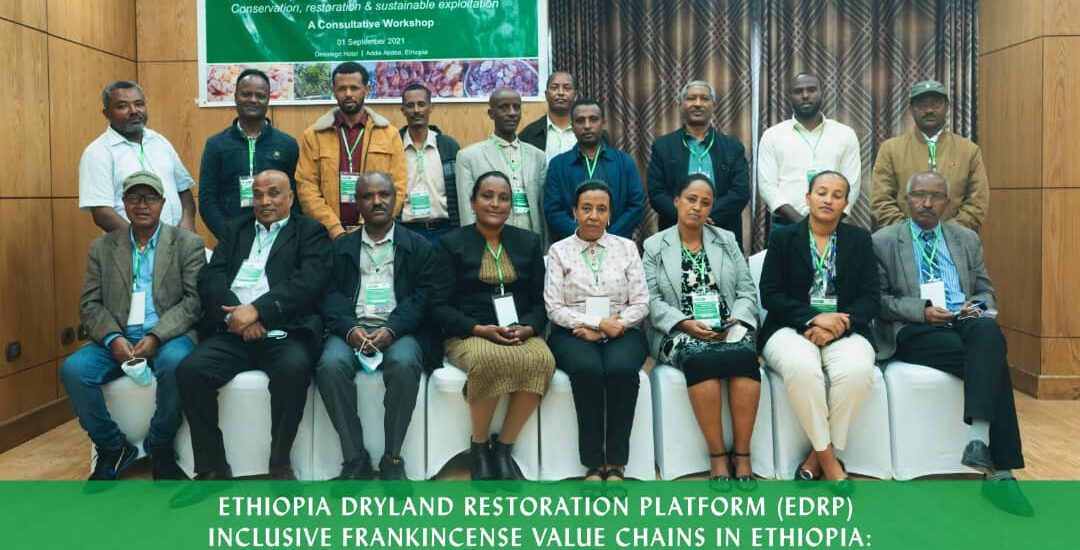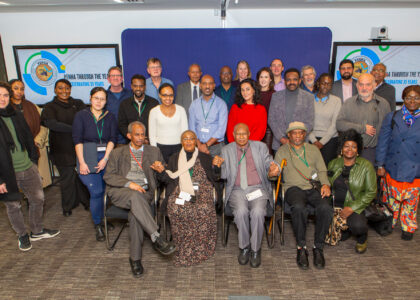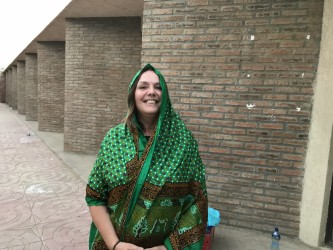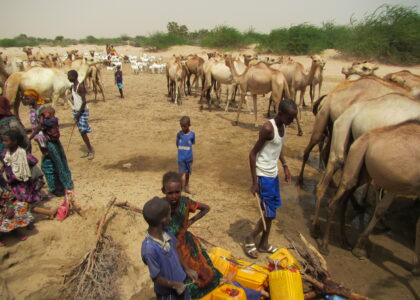Ethiopia Dryland Restoration Platform (EDRP)
A Consultative Workshop
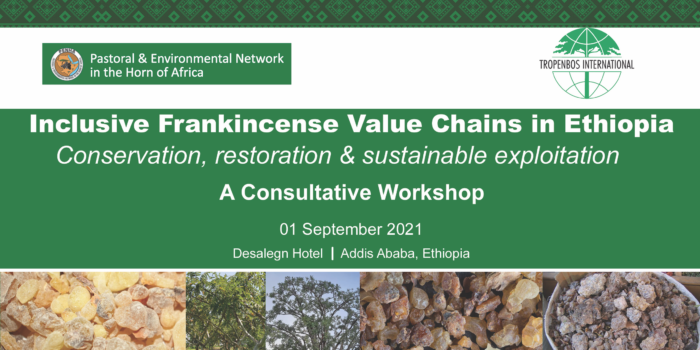
PENHA organized a one-day workshop on Inclusive Frankincense Value Chains in Ethiopia, bringing together representatives of governmental agencies, research institutions, NGOs, the Federal Cooperatives Agency, cooperatives and the private sector. 6 regions were represented – Amhara Region, Afar Region, Benishangul Gumuz, Oromia, Somali Region and Tigray, as well as Addis Ababa.
This consultative workshop aimed to:
- Gather views from selected participants with relevant expertise and knowledge of regional and national trends
- Identify key actors in the value chain and their roles in order to identify opportunities and challenges for systemic improvement, and
- Promote fairness and inclusiveness in frankincense value chains, while also meeting conservation, restoration and commercial/economic goals.
Workshop participants were asked to bring and present regional data and information on frankincense production and marketing. The specific goals of the workshop were to understand inter alia:
- The impact of changes in resource governance on frankincense value chains and on sustainability
- Whether the current conservation-through-use programs have provided financial incentives to protect the harvested species’ population base
- The benefits gained by rural households from the harvesting of forest products and possibilities for a fairer distribution of value added amongst the value chain actors
The workshop was led by Dr Abeje Eshete (EEFRI) and Ato Niguse Hagazi (ICRAF), and moderated by Dr Habtemariam Kassa (CIFOR). Presentations by experts from the regions and from institutions at the Federal level were discussed and refined in group work.
In open discussions, participants exchanged ideas freely. They outlined a formidable set of challenges, but also pointed to solutions. Overharvesting threatens the resource base, which is difficult to regain, once lost. Natural regeneration is minimal, and there are knowledge gaps with respect to prospects for artificial regeneration. In Amhara Region and Benishangul Gumuz, forest fires are a particular problem. Policy and regulatory changes are needed to bolster ownership of trees and forests. Over-tapping must be addressed by training at the local level, as well as measures that shift incentives towards a long-term view. Greater attention to quality, in harvesting, sorting and cleaning, could help actors lower down the value chain to secure higher prices for their products. And cooperatives have the potential to produce essential oils and other products, for the domestic market and even for export. This however requires finding buyers and also surmounting phytosanitary and other import requirements of importing countries. Achieving fairness along the value chain will not be straightforward. The very poorly paid women who do the difficult work of sorting and cleaning the raw product have little or no bargaining power. A participatory market development approach, working with all market actors, could enhance the way that frankincense value chains function. And government must play its role in establishing a supportive regulatory framework, and establishing incentives that attract processing factories to the Ethiopian market.
